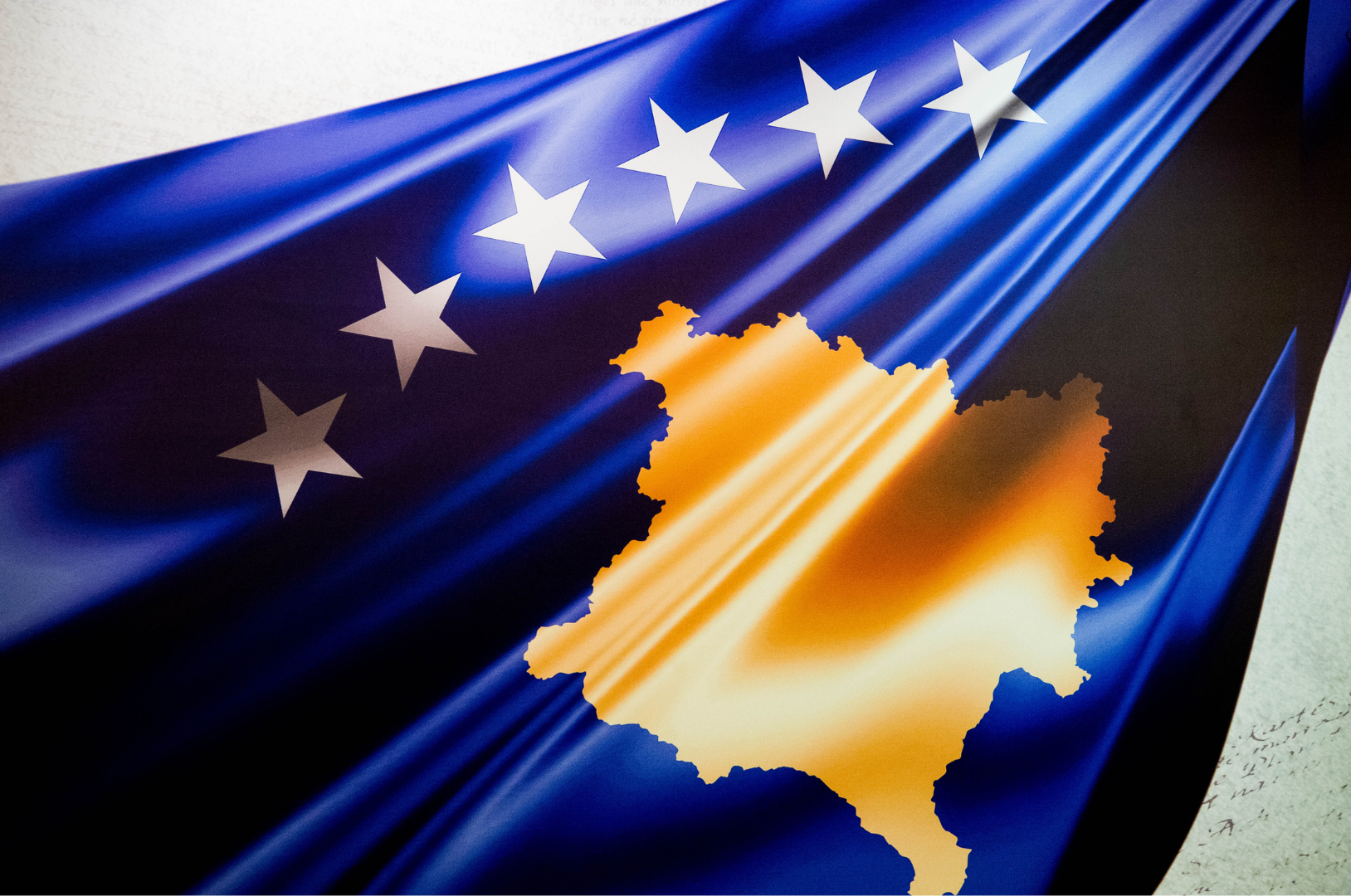Policy Recommendations
- The EU member states should be coherent in their attitudes regarding the visa liberalisation of Kosovo.
- Kosovo should engage in a bilateral level with sceptic EU member states and work on convincing those who hesitate to provide support for the country in this matter.
- Kosovo’s visa liberalisation process, still pending in the Council of the European Union, should be treated as a matter of urgency.
Abstract
“[…] Secondly, Europe cannot afford to look away from the Western Balkans any longer. Given their geography and their history, given the share of tragedy and the share of future promise they bear, the Western Balkans are central to the European continent. They bear scars that remind us of both the fragility of peace and the strength of our union. That is why it is today up to us, there too, to rethink our relationship with the countries of the Western Balkans and give them clearer, more transparent, proactive and sincere prospects of accession. Not accession as a bulwark, so to push back the foreign attempts at destabilization that we are seeing at present. Positive accession, through adherence to our project, in a reasonable period.” (Emmanuel Macron’s speech at the European Parliament – Strasbourg, 19 January 2022).
The speech of President Emmanuel Macron at the European Parliament when taking over the Presidency of the Council of the European Union stressed one more time the support for the Western Balkans in general and their clear accession perspective to the European Union (EU) in the future. The president stated that a Conference on the Future of Europe will be followed by a Conference on the Western Balkans. Therefore, in a meeting on 23 June, ahead of the European Council summit held on 23-24 June 2022, the leaders of the EU member states and of the Western Balkan countries discussed progress on EU integration and the challenges stemming from Russia’s aggression against Ukraine. Visa liberalisation of Kosovo, which is the topic of this Policy Brief, was not on the agenda, however it was discussed by several members of the summit.
****************************
Kosovo: ending isolation
A long road towards Europe
If we take a look at the journey of Kosovo towards integration in the European Union (EU), in a time where other Western Balkan countries are in a process of discussing different stages of the integration, Kosovo remains in search of visa-free regime, which still does not exist after ten years from when the whole journey started. Since 2012, the European Commission has issued five reports on Kosovo’s progress towards visa liberalisation (the most recent in June 2018). In July 2018, the European Commission confirmed that Kosovo had met the two outstanding requirements, thus fulfilling all benchmarks set out in the visa liberalisation roadmap. The European Parliament has voted in support of the European Commission’s proposal which is pending in the Council of the European Union.[1]
Despite the European Commission’s positive assessments regarding the fulfilment of the benchmarks, several member states have remained opposed to date, citing the rule of law concerns. According to the Dutch Ministry of Foreign Affairs, the country suffers from a high level of corruption and organised crime and that there is not enough support for the visa liberalisation process for Kosovo in the Council.[2] However, the Dutch position is shifting. At the European Council summit held on 23-24 June 2022[3], Prime Minister Mark Rutte told the press as follows:
“[…] even maybe on Kosovo visa liberalisation, you might hope that later this year or next year, we might take the next step, because they have done a lot in terms of rule of law and independent judiciary.”[4]
Rutte’s statement at the summit, which referred to granting visa liberalisation as ‘taking the next step’, was significant because it was the first time a Dutch official indicated a potential position change on Kosovo’s visa liberalisation process. These developments illuminate a careful but significant shift towards a more open and positive tone in the Dutch narrative.[5]
After years of waiting, positive signs are also seen from Germany. The German Minister of Foreign Affairs Heiko Mass, on his visit to Kosovo on April 2021, stated that Kosovo “has fulfilled all criteria for visa liberalisation and it should be granted.”[6]
According to the French Ministry of Foreign Affairs in 2019[7], regarding the situation of visas in Kosovo, and the rule of law, the positive developments of that time were too recent to sufficiently curb the phenomena of corruption, acknowledging that progress was made but not enough. Therefore, the continued implementation of the reforms appears essential to produce tangible effects in terms of rule of law and fight against corruption and organised crime. However, on the reception for the French National Day, the French ambassador in Kosovo gave positive signals stating that significant progress has been made on the issue of visa liberalisation although it was not given the green light under the French presidency.[8] This could be an indication that the French position is shifting as well.[9]
Kosovo’s report of 2021 issued by the European Commission stated that overall corruption is widespread and remains an issue of serious concern. Thus, despite significant efforts, there is a need for strong and continual political will to effectively address systemic corruption risks and a robust criminal justice response to high-level corruption. While the government in Pristina is faced with distrust and disbelief among a number of EU member states about its seriousness and achievements in the fight against corruption and organised crime[10], it has to be mentioned that Kosovo’s efforts in the rule of law reform have been noted by the international democracy and the rule of law monitors. According to the international watchdog Transparency International, which published its latest Corruption Perception Index in January 2021, Kosovo made progress by climbing 17 places, achieving the highest annual improvement.[11] Moreover, Kosovo achieved its highest ranking ever in the latest Freedom House report, where it achieved a rank of 37.5 out of 100 in democracy compared to 36.5 in 2021.[12]
Kosovo’s report of 2021 issued by the European Commission stated that overall corruption is widespread and remains an issue of serious concern.
On the other hand, regarding the domestic politics in several member states, driven by worries about migration, that stymied efforts to approve visa-free travel for Kosovars, it is to mention that last year the citizens of Kosovo composed the second lowest number of asylum applicants in the EU compared to other countries of the region. About 1,600 Kosovar citizens applied for asylum in the EU in 2021, constituting so 95% decline from 2014 when 34,000 Kosovar citizens applied for asylum.[13][14] With such progress, Kosovo hopes to impact the convictions of sceptical EU member states who continuously require advancement regarding the above-mentioned issues in Kosovo.
In general, the freedom of movement of Kosovars continues to be a prisoner of the contradictions of the EU and the differences that exist between member states. Until the concerns of opposing EU member states are not addressed sufficiently, Kosovo will remain in the waiting room.[15]
Therefore, there is neither the situation nor the time to play the “blame game” regarding who failed the visa liberalisation process since the whole situation is ending up in a vicious circle, and no solution is being found. Instead, a set of concrete steps should be taken, and discussions should be over opportunities to overcome the problem rather than just blaming and comparing.
In general, the freedom of movement of Kosovars continues to be a prisoner of the contradictions of the EU and the differences that exist between member states.
Additionally, good neighbourly relations and regional cooperation are essential to Kosovo’s European integration process and to any other country in the region that aspires to the EU. To have good relations and cooperation, the region’s citizens should be able to move freely in the Western Balkan countries. However, this is not the case in Kosovo and Bosnia and Herzegovina. The latter doesn’t recognise Kosovo’s independence, and both maintain a strict visa regime. Waiting months and enduring long and often complicated procedures of obtaining a visa to travel to Bosnia and Herzegovina keep many Kosovars away from this country, even for business opportunities. Individually, numerous business and career opportunities are being missed due to the visa regime between Bosnia and Herzegovina and Kosovo.[16] This regime is especially harmful to the emerging generation of young people willing to engage in youth and student mobility within the Western Balkans.[17] In particular, affected by this regime is the Bosnian community of Kosovo. Not only are they required to possess visas if they wish to travel to the EU, but they are also required to have visas to visit their country of origin. Both countries, claiming to have a European perspective while enforcing visas seems far from approaching European values. The region should be connected both internally and with the EU. Therefore, Bosnia and Herzegovina and Kosovo should abolish the existing visa regime[18] as a priority.
Additionally, good neighbourly relations and regional cooperation are essential to Kosovo’s European integration process and to any other country in the region that aspires to the EU.
Isolation is not a European value
Still and despite all this long process, the approval and support of Kosovo for the EU and the integration process remain among the highest in all the region. As seen in the public opinion poll published by the European Western Balkans web portal[19] a majority of 90% is in favour of joining the EU. This situation is especially interesting for one of the authors of this Policy Brief, namely Fjollë Ibrahimi, who initiated this Policy Brief as a research assistant; she finished her post-graduate studies in law and then had the opportunity to conduct an internship and become part of the organisation EuropaNova in Paris, which was created to understand European construction better. Considering the whole situation from the social dimension, a key priority should be the free movement in order to improve the chances of EU accession and secure the citizens a more prosperous future. So, all citizens and in particular the youth should have the opportunity to travel and meet other young Europeans of different nationalities. By exchanging opinions, points of view, ideas, and culture, we learn about each other and ourselves. Europe is also an experience.
Still and despite all this long process, the approval and support of Kosovo for the EU and the integration process remain among the highest in all the region.
The isolation is creating barriers for all citizens, particularly for the youth, to move freely around Europe to search for better education and training opportunities. Even though EU programmes such as Erasmus play a vital role in advancing education, students still have to go over costly and time-consuming procedures to go either to summer/winter schools or benefit from trainings/conferences offered by different prestigious universities in Europe. The cultural exchange element by allowing citizens to meet is important because in this way bridges are built between people, between communities – and this is how Europe is made after all. Additionally, these are the chances for the Kosovar citizens and, particularly, the youth to show the potential they can bring to the European Union.
The isolation is creating barriers for all citizens, particularly for the youth, to move freely around Europe to search for better education and training opportunities.
Furthermore, visa liberalisation can also trigger positive movements in the economic sphere. One of the aims in the stabilisation and association agreement between EU and Kosovo, among others, is to support the efforts of Kosovo to develop its economic and international cooperation.
Indeed, economic development is also raised by either a short-term training or business networking but participation is often difficult due to the visa regime. It has a big impact on attracting foreign investments as well. Integration and mobility of people and resources between countries mark the start of new connections and relations between businesses and governments. Economic growth is fostered through trade, economic agreements, and partnerships. This would undoubtedly advance Kosovo, it would open doors to more business partnerships being created between businesses in Kosovo and elsewhere in the EU, encouraging economic growth and reducing unemployment in the country.[20]
Furthermore, visa liberalisation can also trigger positive movements in the economic sphere.
It can be observed from the practices of the other countries in the region like Albania, Montenegro and North Macedonia, where the trade with the EU has increased significantly after visa liberalisation. The economic benefits of EU integration were truly understood after the creation of the single market along with the removal of all internal physical barriers. The freedom of movement without barriers opens the way for partnerships among businesses and citizens, and thus, all economic actors could have the possibility, for example, to more easily send their staff either for training or business activities in the EU member states. Based on these arguments, the authors of this Policy Brief believe that Kosovo should avail from the freedom of mobility of people and resources.
The initiatives to deepen the cultural cooperation between Kosovo and EU member states are very much appreciated. In this context, the authors can mention the Declaration of Expression of Interest[21] aimed at establishing stable and strategic relations between France and Kosovo and, as well, the accession of Kosovo as an associate member to the International Organization of La Francophonie (OIF) in October 2018. All these initiatives that express interest in supporting various projects between the two countries are linked again with the impact of removing visas would have. We can take, for instance, the fact that Kosovo became an observer member of OIF in 2014 and has since embarked on a proactive policy to promote the French language in the country. Nonetheless, to accomplish this ambitious goal effectively, Kosovar people should be able to attend the language courses or training provided in France or another European country as effortlessly as other European citizens do, without lengthy and expensive procedures.
Kosovo’s European integration should proceed gradually, and the end of isolation should be considered as a first step.
The authors of this Policy Brief believe that because of developments the world is going through, the need of people to have as much interaction as possible with each other is increased. The difficulty of physical access to other countries through visas makes it impossible for Kosovars to use their capacities and energy in the processes that take place in Europe and which are closely related to Kosovo. The aim should be to increase the inclusion of Kosovar society in European culture to make the state’s integration into the EU smoother in the future. We can mention here the great work that the French embassy in Pristina is doing in the field of cultural cooperation. For example, the inclusion of Kosovar cultural actors in festivals held in France during the summer of 2021.[22] Through these meetings in high-quality events with prestigious cultural institutions, the Kosovar participants became more deeply acquainted with French culture, which they can share among their families and friends when they go back home. However, these meetings should be available for every citizen who wishes to participate. Kosovo’s European integration should proceed gradually, and the end of isolation should be considered as a first step.
To conclude, Kosovo’s visa liberalisation process, still pending in the Council of the European Union, should be treated as a matter of urgency. With the crises Europe faces today, and with the three recent application for EU membership[23] of Ukraine, the Republic of Moldova and Georgia, the EU must step up the game and finally remove visas for Kosovars. The potential candidate country should move forward with its European integration process and enjoy the same perspective as other countries in the region.
****************************
Photographer: Etienne Ansotte
© European Union, 2018
Source: EC – Audiovisual Service
****************************



[1] https://ec.europa.eu/neighbourhood-enlargement/kosovo-report-2021_en.
[2] https://www.schengenvisainfo.com/news/netherlands-continues-to-oppose-kosovos-visa-liberalisation-due-to-corruption/.
[3] https://www.consilium.europa.eu/en/press/press-releases/2022/06/24/european-council-conclusions-23-24-june-2022/.
[4] https://newsroom.consilium.europa.eu/videos?keywords=Rutte (23 June 2022, from minute 2:37).
[5] https://www.clingendael.org/sites/default/files/2022-08/Light_at_the_end_of_the_tunnel.pdf.
[6] https://euobserver.com/world/151874.
[7] https://www.senat.fr/questions/base/2019/qSEQ190410179.html.
[8] https://kosovapress.com/en/the-french-ambassador-gives-positive-signals-about-visa-liberalization/.
[9] https://www.schengenvisainfo.com/news/will-kosovo-get-visa-liberalization-this-time/.
[10] https://kfos.org/en/publications/114/visa-liberalization-kosovos-saga-eu-path.
[11] https://www.transparency.org/en/cpi/2021.
[12] https://freedomhouse.org/country/kosovo/nations-transit/2022.
[13] https://ec.europa.eu/eurostat/statistics-explained/index.php?title=File:CPC22_First_time_asylum_applicants_to_EU_by_citizens_of_CPC,_2014_and_2021_(thousand).png.
[14] https://ec.europa.eu/eurostat/statistics-explained/index.php?title=Enlargement_countries_-_statistics_on_migration,_residence_permits,_citizenship_and_asylum#Asylum_applicants_and_first_instance_decisions_in_the_EU.
[15] https://europeanwesternbalkans.com/2021/12/17/agenda-2021-how-can-kosovo-government-approach-the-visa-liberalisation-issue/.
[16] https://kosovotwopointzero.com/en/mission-impossible-get-bosnia-herzegovina/.
[17] https://europeanwesternbalkans.com/2020/11/06/in-mobility-we-trust-lets-abolish-bosnia-kosovo-visa-regime-and-boost-erasmus-in-the-western-balkans/.
[18] https://www.rycowb.org/wp-content/uploads/2020/10/One-Way-Ticket-Not-More-Seven-Ideas-for-a-Prosperous-Western-Balkans.pdf.
[19] https://europeanwesternbalkans.com/2021/11/08/public-opinion-poll-in-the-western-balkans-on-the-eu-integration/.
[20] https://telegrafi.com/kosova-dhe-franca-thellojne-bashkepunimin-kulturor-nenshkruhet-marreveshja-mbeshtetese-mes-ministrive-dhe-ambasades-franceze/.
[21] https://www.mfa-ks.net/en/single_lajmi/4533.
[22] https://kosovo.ambafrance.org/De-Cannes-en-Avignon-le-Kosovo-s-est-invite-dans-les-grands-festivals-en-France.
[23] https://www.consilium.europa.eu/en/press/press-releases/2022/06/23/european-council-conclusions-on-ukraine-the-membership-applications-of-ukraine-the-republic-of-moldova-and-georgia-western-balkans-and-external-relations-23-june-2022/.
About the article
ISSN 2305-2635
The views expressed in this publication are those of the authors and not necessarily those of the Austrian Society of European Politics or the organisation for which the authors are working.
Keywords
European Union, Western Balkans, Kosovo, visa liberalisation, isolation, development, youth
Citation
Bernard, E., Ibrahimi, F. (2022). Kosovo: ending isolation. Vienna. ÖGfE Policy Brief, 18’2022








